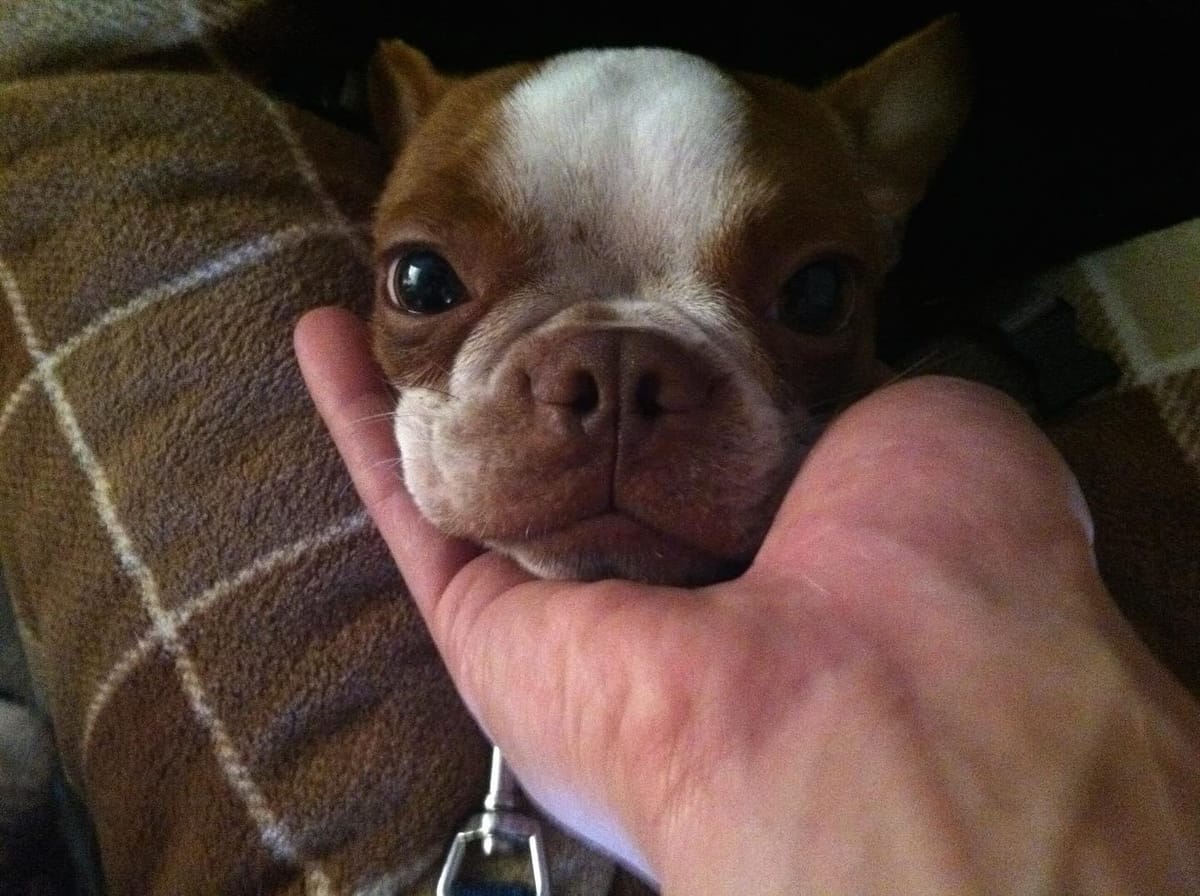Orbiting Saturn
If you don't die, you survive, and vice versa.

When we got to Virginia, the WiFi in our hotel was broken. By the time they fixed it, I was so used to being offline that I decided to stay that way as long as I could.
Our dog, Peggy, died in her sleep a week before the trip. I say “our” dog, but she was my husband’s dog; she was one of those animals that’s designed to love just one person. I could tell that he was her person, not just because she would sit or fetch or walk on a leash for him — she would do none of the above for me, especially not the walking — but because, if he was away for a week or more, she would decide that he was dead and start sucking up to me. All of a sudden, there she was, sitting on my lap, licking my hand, dropping toys in front of me, asking to play. I thought she had hearing problems, or that she was naturally reserved, but no, she just had one of us that she liked better, and he was it.
Peggy’s iron constitution — her absolute certainty about who she liked, and who she didn’t; the fact that the second category included every living person or animal beside my husband; the fact that she was old, so impossibly old, almost fifteen, which is supposed to be the outside limit of the years a dog like her can even be on the planet, and yet she refused to succumb to the ravages of time — had become a running joke in our family. She was going to outlive all of us. She was immortal, and had contracted with dark forces. Or maybe she had died already and we just couldn’t tell. She wasn’t that active.
My husband was the one to find her. She was curled up in her bed behind the couch. He picked her up, and wrapped her in a blanket, and buried her with her toys in the woods behind our house, all before anyone else woke up. He told me later that Peggy had been sick; that the heat wave was hard on her and that the normal methods of keeping her cool, like feeding her ice cubes, didn’t seem to be helping. I didn’t notice. Our daughter didn’t notice. It wasn’t any kind of dramatic sickness. She was just old; she was an old dog, who laid on the couch all day, and she had cloudy eyes, and those benign fat lumps that dogs get when they age, and maybe even some actual hearing problems by the end, but she passed every check-up. She wasn’t frail; she wasn’t ailing. In another year, the heat wave wouldn’t have gotten to her, and she would have toughed it out and played with her ice cubes by skidding them around the kitchen floor, like she does every year, but this year, she was old, and she just died.
The heat wave broke the next day. This struck me as deeply unfair — if she hadn’t been killed by the heat wave, she would have survived the heat wave; it was as if she’d jumped the gun, acted without the proper context, and I wanted to argue with her about it — but then I realized that’s how dying works. If the bad thing doesn’t kill you, then you survive it. This seems like great news until you realize that the reverse is also true.